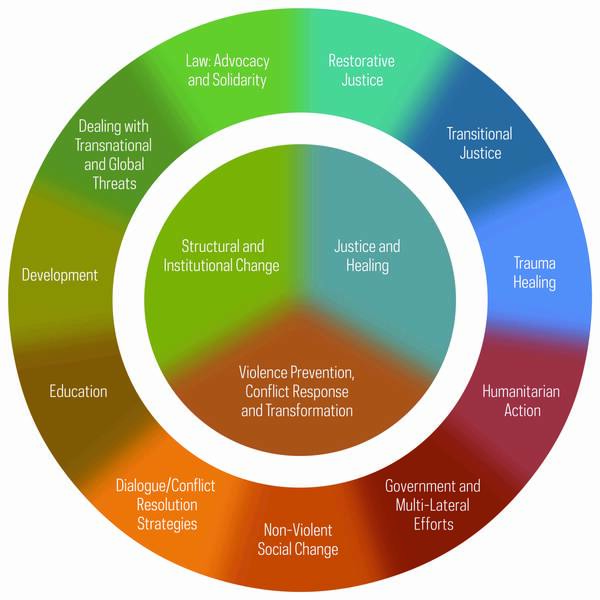Catholic Peacebuilders Bring Hope Amid the World's Crises
To read the global headlines is to believe war is perhaps more present than peace. From Ukraine to Congo, Colombia to South Sudan, to divisions and extremism in our own country, conflict and destruction seem pervasive. In all that crisis and misery, what is the role of the Catholic Church?
This June, Notre Dame sought to answer that question by holding a virtual conference, “Catholic Peacebuilding in Times of Crisis: Hope for a Wounded World,” which drew more than 1,000 participants including Church leaders, peacebuilders, and scholars, along with 80 presenters from 30 different countries.
The conference was sponsored by Catholic Peacebuilding Network (CPN), a voluntary network of academics, practitioners, clergy, and laity who study conflict and whose secretariat is housed in Notre Dame’s Kroc Institute for Peace Studies, along with 28 other co-sponsors, including two Vatican groups, Caritas Internationalis and the Dicastery for Promoting Integral Human Development. Sister Alessandra Smerilli, secretary of the Dicastery for Promoting Integral Human Development, offered the keynote address.
CPN’s coordinator and the director of Notre Dame’s Catholic Peacebuilding Studies, Gerard Powers, says, “The Catholic Church is a

peacebuilding church that is preventing violent conflict, limiting and stopping it when it occurs, and promoting rebuilding, healing, and reconciliation after the violence ends.”
He adds, “We know that there is much more that the Catholic community can be doing to realize its full peacebuilding potential.”
The four days of sessions were offered in a variety of languages and translations, and ranged in subject from environmental peacebuilding, to transitional justice and reconciliation, to women’s peace leadership. The sessions built on the expertise from groups like Catholic Relief Services, Jesuit Refugee Service, and a number of Catholic universities and foundations.
The comprehensive nature of the presentations was intentional, the conference program noted, and was a response to Pope Francis’s emphasis in Laudato si’ that “everything is connected.” So too will peace require a connected and communal effort, said Archbishop Gabriele Caccia, permanent observer of the Holy See to the United Nations, in a prerecorded message. He noted, “Achieving a positive peace based on justice and development is beyond the capability of any one state, no matter how powerful….To make progress toward this end, states must act in concert, choosing cooperation over competition.”
Full session recordings are available at cpn.nd.edu.